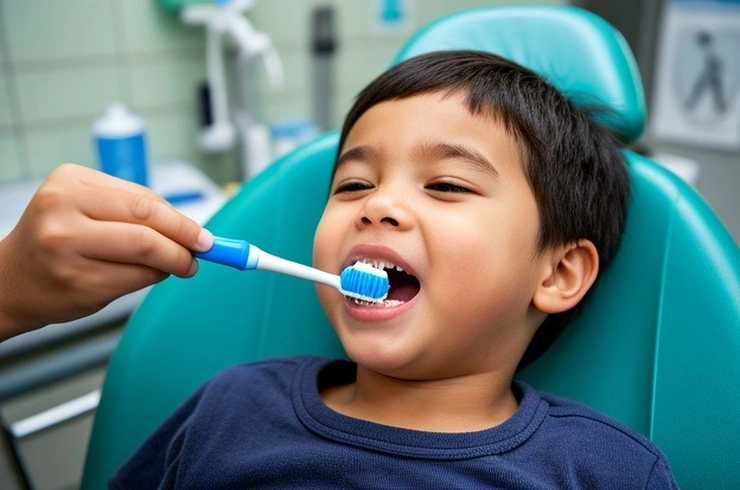
Bad breath, or halitosis, in children and toddlers is a common issue that often signals a need for attention to their oral health, general well-being, or diet. While frequent, it's not considered normal, and addressing it usually involves simple adjustments or professional advice. Unlike adults, children are particularly vulnerable to certain causes due to their developing oral hygiene habits and immature immune systems.
One of the primary culprits is poor oral hygiene. Bacteria in the mouth feed on food particles, forming plaque, a sticky film that can lead to gum irritation and tooth decay. Both conditions contribute significantly to bad breath. Ensuring your child brushes twice a day for two minutes, flosses daily, and attends regular professional dental cleanings is crucial. For children under three, a rice-sized smear of toothpaste is sufficient, while older children can use a pea-sized amount, making sure they spit it out. Don't forget to have them brush their tongue, as it can harbor odor-causing bacteria.
Beyond oral hygiene, various infections and diseases can cause bad breath. Sinus infections lead to fluid buildup in nasal passages, creating a breeding ground for bacteria and a distinct smell. Swollen tonsils, often red and inflamed with white spots, can also trap bacteria and contribute to halitosis. In rarer cases, underlying health conditions like diabetes, stomach infections, kidney failure, liver problems, or even certain cancers can manifest with bad breath. If you suspect an infection or a more serious condition, a doctor's visit is essential.
Surprisingly, foreign objects lodged in a child's nasal passages can also cause a nasty smell. Young children's curiosity often leads them to insert small items into their noses, which can result in infection and accompanying bad breath. If this is suspected, medical assistance is needed to remove the object.
Dry mouth or mouth breathing is another common cause. Factors like finger-sucking, pacifier use, certain medications, or dehydration can reduce saliva production. Saliva is vital for washing away odor-causing bacteria. Snoring or breathing through the mouth at night also dries out the mouth. Ensuring adequate hydration and consulting a dentist about dry mouth prevention can help.
Finally, nutrition and diet play a role. Certain foods, such as garlic, onions, strong spices, and even high-protein foods like red meat and cheese, contain odorous molecules that are excreted through the lungs, causing bad breath. Limiting these foods might be helpful if they are a consistent source of the problem.
If bad breath persists despite implementing a robust oral hygiene routine and a dentist's assessment confirms oral health, your child's primary care physician may conduct further tests to identify underlying causes. Regardless of the reason, instilling proper brushing and flossing habits early on is key to fostering lifelong positive oral care.
Pro Tip
The content of the article is shared by netizens, please carefully identify it